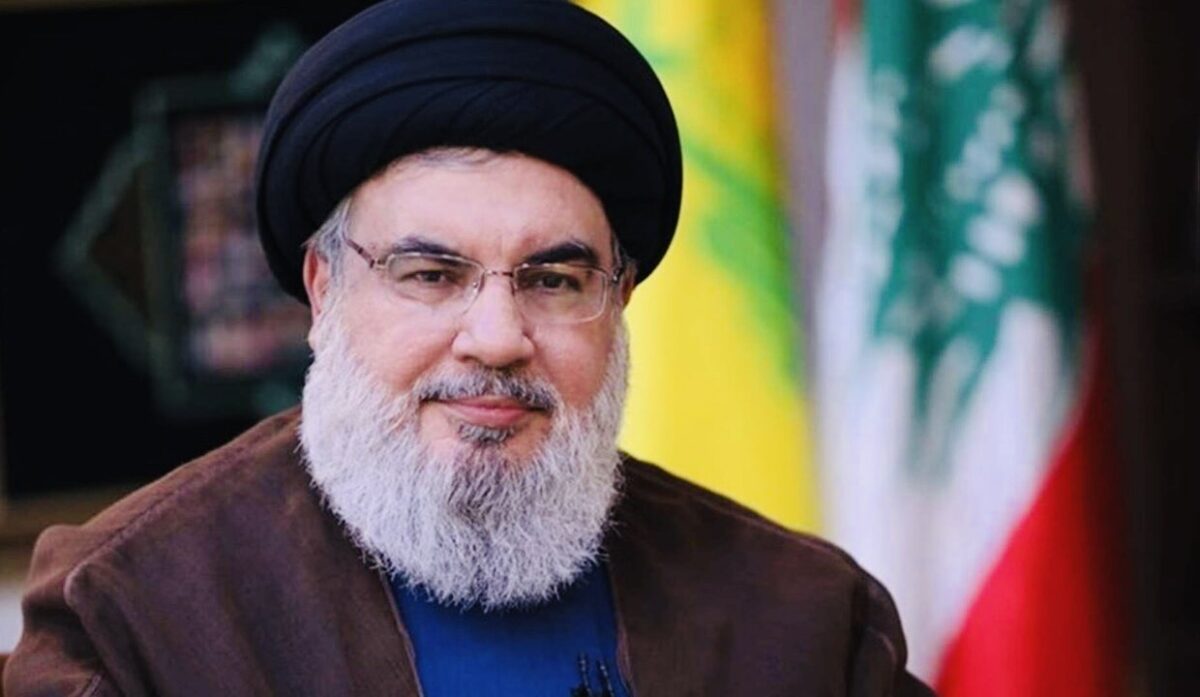In the past month, the Israeli government has issued a series of stark warnings to Hezbollah and the Lebanese authorities that Lebanon could be dragged into a fullscale war with Israel.
Israeli officials have warned Lebanon that a major war could erupt if diplomacy falls short of inducing Hezbollah to withdraw from Israel’s border or fails to stop Hezbollah’s daily bombardments of Israeli communities along and near the Lebanese frontier.
These warnings have been conveyed to the Lebanese government and Hezbollah’s leader, Hassan Nasrallah, by Prime Minister Benjamin Netanyahu, ministers in the war cabinet, and Netanyahu’s national security advisor in the past three weeks as the Israeli army proceeds with its punishing ground and air offensive in the Gaza Strip.
Since the outbreak of the fifth Gaza war, hot on the heels of Hamas’ massacre of 1,200 Israelis and foreigners in southern Israel on October 7, Hezbollah has opened a second front in a demonstrable show of solidarity with Hamas.
Hezbollah — Israel’s bitter enemy and a proxy of Iran — has lined up squarely behind Hamas by launching rockets, anti-tank missiles, mortars and drones at Israeli military bases, towns and kibbutzim on the Golan Heights and in northern Israel.
Hezbollah’s tactic is clear: to keep Israel bogged down on two fronts and to sap its strength.
The majority of Hezbollah’s projectiles have been intercepted by the Iron Dome missile defence system or have landed in open areas, causing no injuries or damage. But a few have reached their targets with serious consequences.
Israel has responded in a fairly measured fashion with artillery fire and air and drone strikes targeting Hezbollah command centers, rocket launch pads, weapons depots and intelligence facilities.
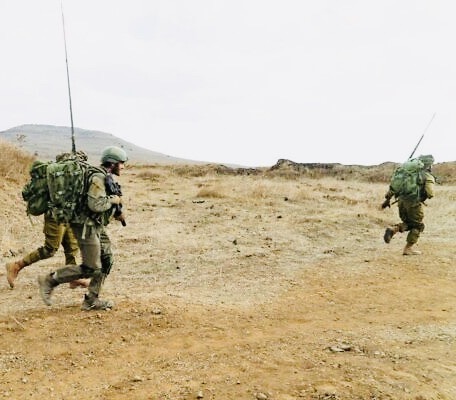
In a recent televised address, one of two speeches he has delivered since October 7, Nasrallah said that Hezbollah has no intention of pulling out of the war. “The pressure on Israel must continue,” he said. “We are in a battle of steadfastness and patience.”
Nasrallah indicated that Hezbollah is striking deeper into Israel with powerful new weapons such as Grad rockets and surface-to-air missiles. “There has been a quantitative improvement in terms of the number of operations and the type of weapon used,” he said recently.
Reports suggest that Hezbollah has been attacking targets in Israel eight to ten kilometers from the Lebanese border. In response, Israel has bombed sites even further inside Lebanon. At the same time, Hezbollah has tried to limit the scope of its attacks to southern Lebanon and northern Galilee so as to avoid an all-out conflict with Israel on the scale of the 2006 war.
The skirmishes have claimed the lives of seven Israeli troops and several Israeli civilians. At an immense cost to its economy, the clashes have compelled Israel to evacuate some 100,000 civilians in the vicinity of the Lebanese border.
On the Lebanese side, at least 107 Hezbollah gunmen, 16 Palestinian operatives affiliated with Hezbollah, and 17 civilians, including three journalists, have lost their lives. An Israeli drone strike near the Syrian border on the Golan Heights earlier this month reportedly killed Hassan Ali Dakdouk, the son of Ali Mussa Dakdouk, the commander of Hezbollah’s operations in southern Syria.
In addition, one Lebanese army soldier has been killed, an incident for which Israel apologized. Israel has struck the Lebanese army 34 times since October 7, much to the disapproval of the United States, which regards it as an essential institution for the stability and security of Lebanon. Some of the Israeli strikes were accidental, having been intended for Hezbollah. As a result of these cross-border incidents, some 65,000 Lebanese have been displaced from their homes.
In the face of Hezbollah’s unbridled aggression, Israeli officials have spoken of dire military consequences which may be in the offing.
On December 15, Benny Gantz, a member of the war cabinet and the former defence minister, said that Israel may be forced to react far more vigorously should diplomatic efforts to curb Hezbollah’s attacks fail. As he put it, “If the world does not push Hezbollah away from the (Israeli) border, Israel will do it.”

Gantz’s comments prompted Jake Sullivan, U.S. President Joe Biden’s national security advisor, to say that the threat posed by Hezbollah should be “dealt with through diplomacy and does not require the launching of a new war.”
Sullivan said that residents of northern Israel who have been compelled to leave their homes due to Hezbollah aggression should be able to return with “a true sense of security. And that means dealing with the threat that comes from the other side of the border.”
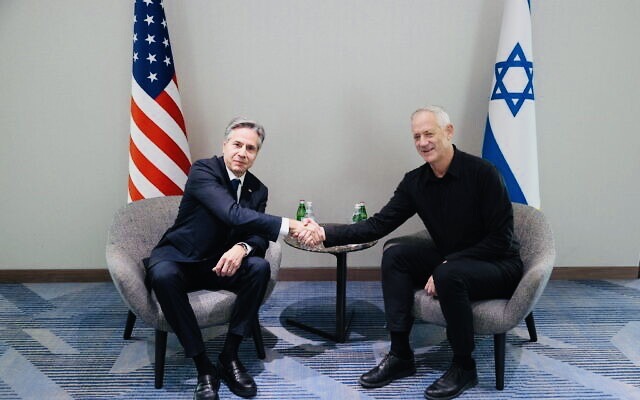
On December 11, Gantz told U.S. Secretary of State Antony Blinken that Hezbollah attacks will require a firm Israeli reply. “The international community has an important role to play,” said Ganz. “It must ensure that the state of Lebanon stops such aggression along its border.”
On December 9, Tzachi Hanegbi, Netanyahu’s national security advisor, warned that Hezbollah’s special Radwan force may try to duplicate Hamas’ murderous rampage. In light of this threat, Israel may have no choice but to wage total war against Hezbollah once Hamas has been defeated, he said.
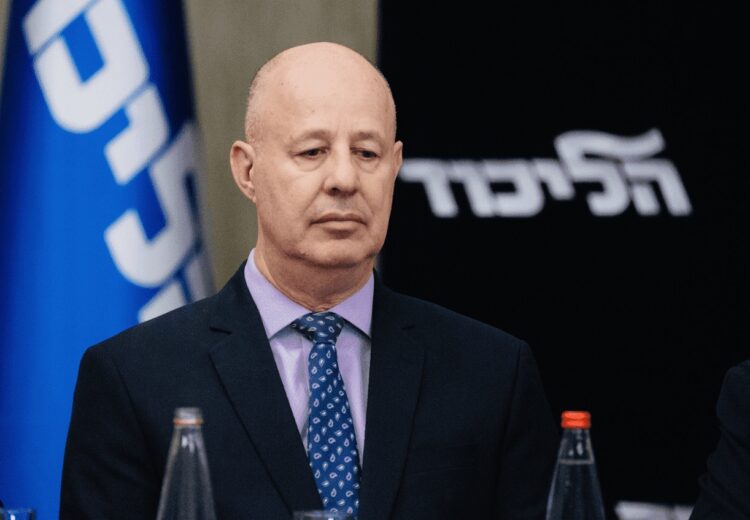
“We can no longer accept the Radwan force sitting on the border,” he added. “The situation in the north must be changed. And we can no longer accept (United Nations) Resolution 1701 not being implemented.”
Resolution 1701, passed in the wake of the month-long war in 2006, called for the disarmament of all non-state armed forces in Lebanon between the Israeli border in the south and the Litani River in the north, a distance of about 30 kilometres. Only the Lebanese army and the United Nations Interim Force in Lebanon (UNIFIL) are permitted to operate in this zone.
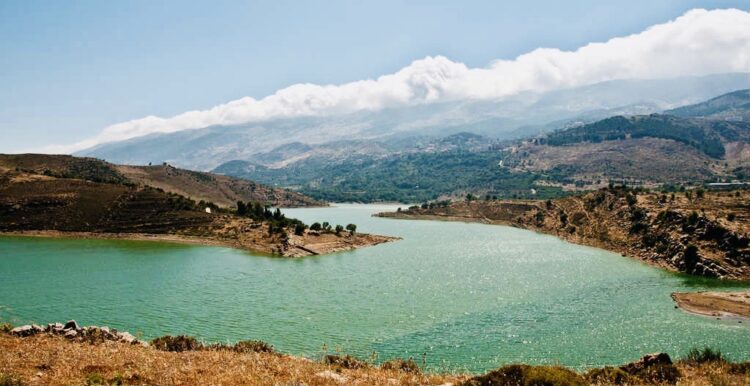
Hezbollah, having flagrantly flouted this resolution, has amassed men and weapons near the Israeli border with little or no resistance from UNIFIL, the Lebanese army and the Lebanese government, which is exceedingly weak and ineffectual.
Cognizant of these realities, Hanegbi doubts whether diplomacy can induce Hezbollah to move its forces north of the Litani River.
On December 6, Defence Minister Yoav Gallant threatened to remove Hezbollah from the vicinity of Israel’s border and push it beyond the Litani River. He voiced his preference for a diplomatic solution, in line with Resolution 1701, but acknowledged that Israel is prepared to resort to military means to achieve this objective. Gallant reiterated his threat on December 17.
As for Netanyahu, he warned Hezbollah on December 7 that a third war in Lebanon, following the wars of 1982 and 2006, is possible. “If Hezbollah chooses to start an all-out war, then it will single-handedly turn Beirut and southern Lebanon … into Gaza and Khan Younis,” he said, alluding to the utter desolation to which the Gaza Strip has been subjected since October 7.

The prospect of a full-blown Israel-Hezbollah war has been addressed by Foreign Minister Eli Cohen as well. Last month, in a letter to the United Nations Security Council, he warned that a regional war in the Middle East is likely if Resolution 1701 remains unimplemented.
“For the good of regional stability and to avoid further escalation, the Security Council must adopt a totally different approach to end the dangerous violations by Hezbollah and other terrorist groups on the border,” he wrote.
Yesterday, Cohen told French Foreign Minister Catherine Colonna that only the implementation of Resolution 1701 and the removal of Hezbollah from the border area will prevent war in Lebanon. “Hezbollah … endangers Lebanon and the entire region,” he said.
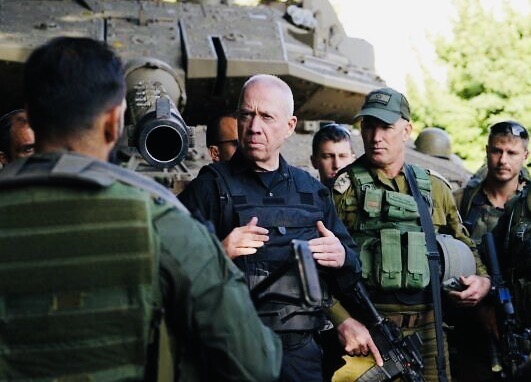
It is extremely unlikely that Hezbollah, a state-within-a-state, will voluntarily abide by Resolution 1701. Hezbollah, like Hamas and Iran, is completely committed to Israel’s destruction and is willing and able to wage a lengthy war of attrition against Israel from southern Lebanon.
Yusri Khizran, in a paper for the Begin-Sadat Center for Strategic Studies at Bar-Ilan University, writes that Hezbollah’s assistance to Hamas in the current Gaza war is a function of its “eternal struggle” against Israel.
“Hezbollah’s secretary-general, Hassan Nasrallah, said in his first speech after October 7 that, while the time is not yet ripe for an all-out confrontation, he is convinced that day will come. It is highly doubtful that the huge arsenal of weapons Hezbollah has amassed over the past two decades is intended solely for defensive purposes. While it has adapted its discourse to the needs of time and circumstance, no one should be deceived into believing it has lost sight of its ideological totalitarianism.
“Hezbollah retains a conviction that it is capable of delivering a crushing blow to Israel. Following the American withdrawal from Afghanistan, and the scenes of Afghan citizens being crushed under the wheels of airplanes, Nasrallah assured his supporters that such scenes would be repeated at Ben-Gurion Airport in Tel Aviv.
“Hezbollah is preparing, as it always has, for the doomsday battle with Israel. Its involvement in the fighting right now, however limited, proves that it remains committed to fulfilling its messianic mission to inflict a decisive defeat on Israel.”
Israel has no illusions about Hezbollah and is assiduously preparing itself for a significant military showdown with it when the dust in Gaza finally settles.
